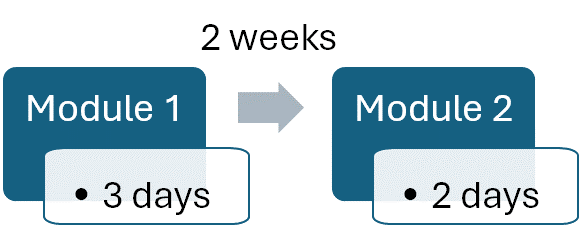The APM Project Professional Qualification (PPQ) assesses your capability in delivering projects. Based around a case study provided in advance, the PPQ Assessment (which you will book separately) comprises of a scenario discussion, an oral exam, and a written report. The 5-day programme is structured around 2 modules, typically spread over a 2 to 3 week timescale.
Those who hold the APM PPQ are eligible to apply for full membership of APM.
95% of people believe that taking an APM qualification will add value to their career.
Source: APM Qualifications Survey
What’s included?
Your learning materials include:
-
PPQ Qualification Handbook – includes all the key information that you need to know about the PPQ, including the syllabus, exam format, and logistical details.
-
Sample assessment materials – scenario, candidate brief, written assignments, and oral questions.
-
QA courseware – includes all the tips, exercises, scenarios, and questions that will ensure you’re fully prepared for the assessment.
This course will prepare you effectively for the PPQ assessment but it does not include the assessment itself and learners need to self-book and pay for the assessment separately. Although not always possible, we recommend that you book your PPQ assessment before attending your QA course, and schedule it approximately three weeks after completion of Module-2 of your course. This will allow you to use your assessment scenario during Module-2. APM will send you the designated scenario 4 weeks before your assessment.

























